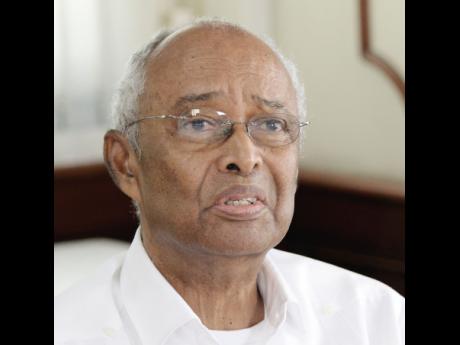Engineers’ Angle | The long journey towards a National Building Act Pt 2
While the work on the Building Code was progressing, the committee sought assurances from the responsible ministry that the drafting of a Building Act would be done concurrently.
This act would mandate the use of the code, and was to be in place when the code was completed. Regrettably, it never happened.
In 2010, the Jamaica Institution of Engineers, noting the slow adoption and use of the new Building Code, suggested to the Bureau of Standards, the formation of a committee called the National Building Code Implementation Committee (NBCIC), to support the drafting of a Building Act.
This committee was comprised mostly of government representatives, with some private-sector members.
Following the approach used in developing the application documents, the committee met monthly, and a first draft of the Building Bill was produced in late 2011.
Overall, NBCIC held more than 20 meetings, and the many comments and suggestions coming from these interactions resulted in proposed bills being drafted in 2013 and again in 2016.
There were four different ministers of local government, who dealt with the Building Bill throughout its development, and its progress varied according to the interest of the incumbent minister, as well as the perceived importance of the other issues competing to be placed before the country's Parliament.
It is estimated that only 30 per cent of Jamaica's residential small-building stock is designed by registered building professionals.
In order to deal with this reality, the new Building Act and Code, recognises building professionals but also seeks to introduce 'building practitioners', who will be licenced and trained to execute small building works, within certain prescribed limitations.
Both sides of Parliament embraced this concept, which is seen as an important step in improving the resilience of the built environment to natural disasters.
The World Bank intends to enter into an agreement with the Jamaican Government for a Disaster Vulnerability Risk Reduction Project, where the bank would assist with the funding of training and other facilitating activities, once the Building Act was promulgated.
One of these facilitating activities involves working with the International Codes Council to reduce the cost for local professionals to purchase the Jamaica National Building codes, as that had been identified as an impediment to its wide scale use.
The further deliberations of the NBCIC generated many comments which were incorporated in the version of the bill that was passed by both houses of Parliament in January 2018.
This new Building Act repeals all the previous acts, and establishes a new governance structure for the building industry, where three new entities, the Building Advisory Council, the Building Practitioners Board and the Building Appeals Tribunal will now regulate the building industry.
Quality of construction material, practices
The new Building Act and Regulations also mandate that more attention should be paid to the quality of construction material and construction practices, and that more construction stage inspection and permitting is done.
There have been suggestions that these mandates will increase the cost of construction, but while this may be true in some cases, the more important outcome is that buildings will be a lot more resilient to disasters and lives and property will be protected.
The private-sector members of the NBCIC continue their involvement in the administrative process by voluntarily working with the Ministry of Local Government and Community Development to develop the Regulations for the Building Act.
This is an example where a public-private sector partnership has worked well, to reduce the timeframe required and to produce a better overall result.
The local government minister recently declared that the new Building Act will become operational this month. We are far advanced with the regulations to the act, and hope to complete them shortly after that date.
Persistence does payoff in the end.
Starting with only an idea in 2002, today Jamaica has a modern Building Code and will shortly have an enabling Building Act and Regulations.
I am truly amazed at the assistance and support that I received on this journey, and wish to sincerely thank all the members of the many committees and the kind sponsors, for their contributions to this effort.
- Noel daCosta has worked as chief engineer, brew master and chairs the National Building Code Implementation Committee. Send questions and comments to editorial@gleanerjm.com or jie@cwjamaica.com. You may also leave your comments for the JIE's Technical Committee at our Facebook page: Jamaica Institution of Engineers JIE.



